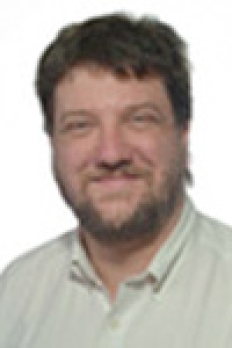Douglas Thomas is Associate Professor in the Annenberg School for Communication at the University of Southern California. He received his Ph.D. from the University of Minnesota in Communication in 1992 and specializes in Critical Theory and Cultural Studies of Technology. He is author of Reading Nietzsche Rhetorically (Guilford Press, 1998), an examination of the role of representation in the philosophy of Friedrich Nietzsche and Hacker Culture (University of Minnesota Press, 2002), a study of the cultural, social, and political dimensions of computer hacking. Currently, he is working on Technology and New Media: An Introduction (New York University Press), a survey of recent approaches to technology and new media and their impacts of society and Viral Style: Information, Subculture, and the Politics of Infection, a book which examines the underground production of computer viruses as well as cultural representations of and responses to them. He is co-editor of Cybercrime: Law Enforcement, Security and Surveillance in the Information Age (with Brian D. Loader, Routledge, 2000) and Technological Visions: The Hopes and Fears That Shape New Technologies (with Marita Sturken and Sandra Ball-Rokeach, Temple University Press, 2004). He has written extensively for The Online Journalism Review and for Wired News covering issues of hackers, online culture, privacy and security. An expert on cyberculture, his commentary has appeared in the New York Times, the Los Angeles Times, New Scientist, and The Chronicle of Higher Education, as well as on local and national radio programs, Los Angeles news programs, and CNN.
He is director of the Thinking Through Technology project, which examines the redefinition of entertainment in the digital age, the relationship between technology and learning, and the user cultures surrounding emergent new media and technologies. He is also co-investigator (with Sandra Ball-Rokeach, PI, and Marita Sturken) on the Metamorphosis Project, a $700,000, three year study that examines the impact of technology on Los Angeles and studies the historical and predictive implications of dystopian and utopian narratives about technology.
Professor Thomas is a founding member of the Critical and Cultural Studies division of the National Communication Association and has served as Chair of the division in 1998, is a member of the editorial board of The Journal of Computer Mediated Communication, Information, Communication & Society, Womens Studies in Communication, The Quarterly Journal of Speech and Critical Studies in Media Communication, and serves on the advisory board for the Research Center for Cyberculture Studies at the University of Washington. In 1999, he received the New Investigator Award from the National Communication Associations Rhetorical and Communication Theory Division.








